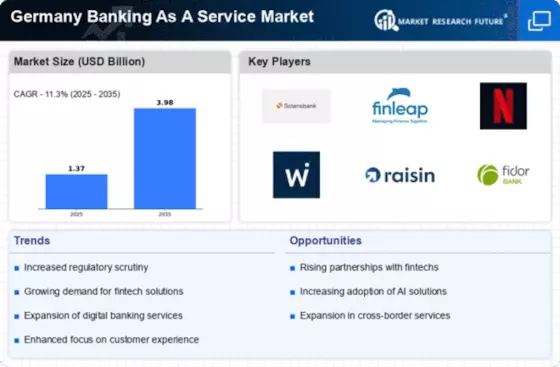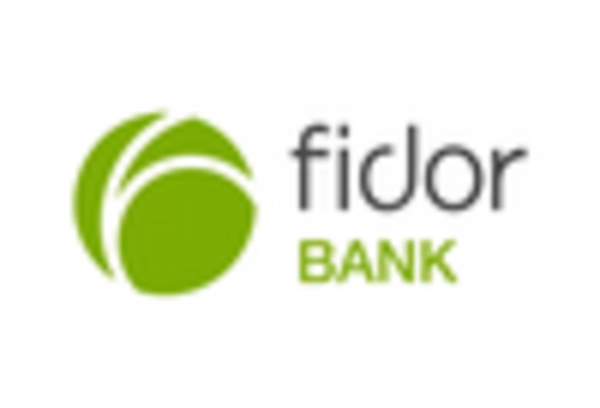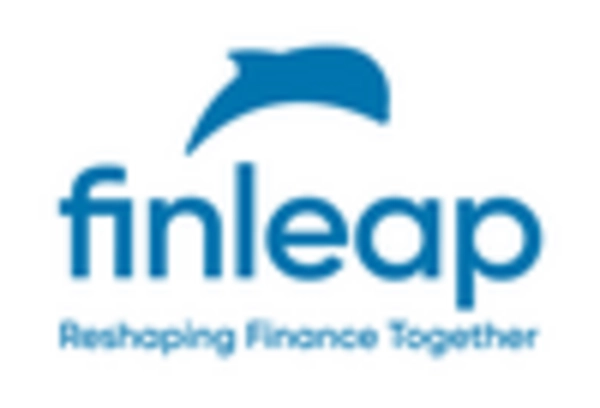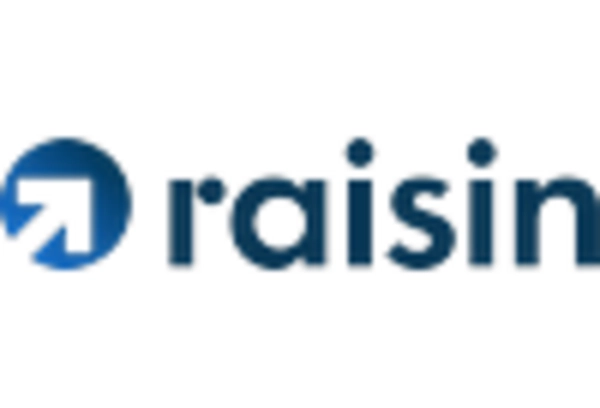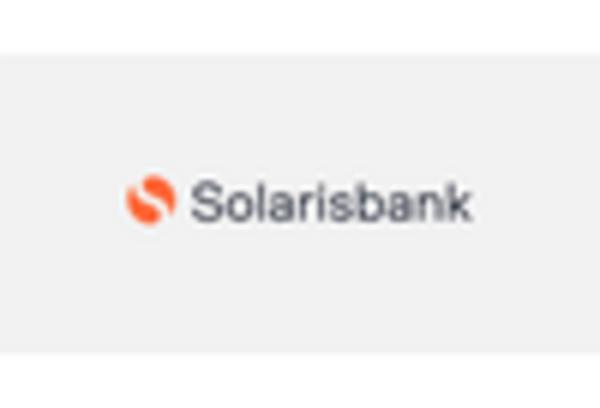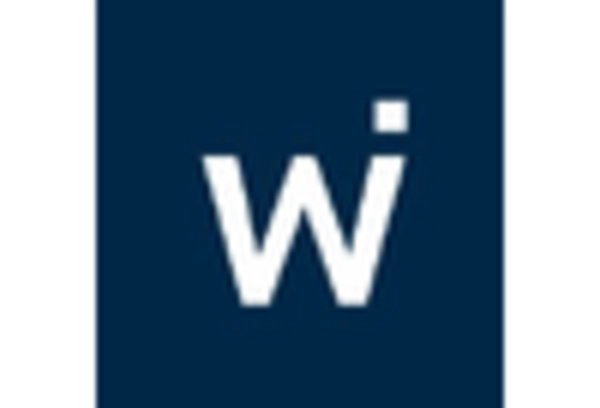Regulatory Support for Innovation
The regulatory landscape in Germany is evolving to support innovation within the Banking As A Service Market. The Federal Financial Supervisory Authority (BaFin) has introduced guidelines that encourage fintech companies to collaborate with traditional banks. This regulatory support is crucial, as it fosters an environment conducive to innovation while ensuring consumer protection. In 2025, the German government is expected to implement further measures aimed at simplifying the licensing process for fintechs, thereby promoting competition. Such initiatives are likely to attract new entrants into the market, enhancing the overall service offerings available to consumers. The regulatory framework thus serves as a catalyst for growth in the Germany Banking As A Service Market.
Expansion of Payment Solutions and Services
The expansion of payment solutions and services is a key driver for the Germany Banking As A Service Market. With the rise of e-commerce and digital transactions, there is an increasing need for efficient payment processing solutions. In 2025, the volume of digital payments in Germany is projected to exceed 200 billion euros, highlighting the growing reliance on electronic payment methods. Banking As A Service providers are stepping in to offer innovative payment solutions that cater to this demand. By enabling banks to integrate advanced payment technologies, these providers facilitate faster and more secure transactions. The expansion of payment solutions is thus a significant factor contributing to the growth of the Germany Banking As A Service Market.
Rise of Consumer-Centric Financial Products
The Germany Banking As A Service Market is experiencing a shift towards consumer-centric financial products. As customer preferences evolve, banks are increasingly focusing on tailoring their offerings to meet specific needs. In 2025, it is estimated that 55% of new financial products launched in Germany will be designed with a customer-first approach. This trend is driven by the desire for personalized banking experiences, which are facilitated by Banking As A Service providers. By leveraging data analytics and customer insights, banks can create products that resonate with their target audience. This focus on consumer-centricity is likely to enhance customer satisfaction and loyalty, thereby driving growth in the Germany Banking As A Service Market.
Increasing Demand for Digital Banking Solutions
The Germany Banking As A Service Market is witnessing a notable surge in demand for digital banking solutions. As consumers increasingly prefer online banking services, traditional banks are compelled to adapt. In 2025, approximately 70% of German consumers utilized digital banking platforms, indicating a shift in consumer behavior. This trend is likely to continue, as younger generations prioritize convenience and accessibility. Consequently, banks are exploring partnerships with Banking As A Service providers to enhance their digital offerings. This collaboration not only allows banks to meet customer expectations but also enables them to remain competitive in a rapidly evolving market. The increasing demand for seamless digital experiences is thus a significant driver for the Germany Banking As A Service Market.
Technological Advancements in Financial Services
Technological advancements are playing a pivotal role in shaping the Germany Banking As A Service Market. Innovations such as artificial intelligence, machine learning, and blockchain technology are being integrated into banking services, enhancing efficiency and security. In 2025, it is projected that over 60% of banks in Germany will adopt AI-driven solutions to streamline operations and improve customer service. These technologies not only optimize internal processes but also enable banks to offer personalized services to their clients. As a result, the integration of advanced technologies is likely to drive the growth of the Germany Banking As A Service Market, as banks seek to leverage these tools to remain competitive.


